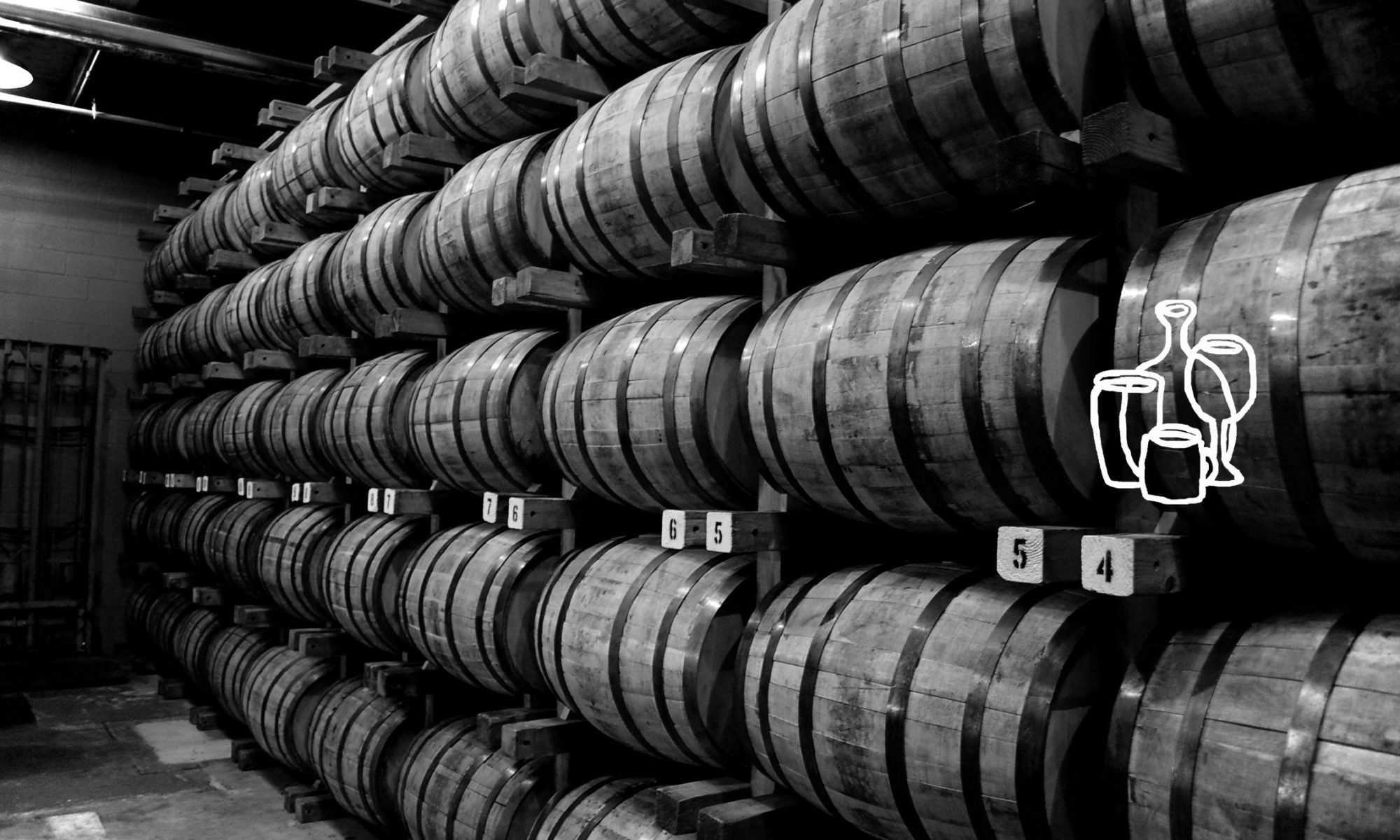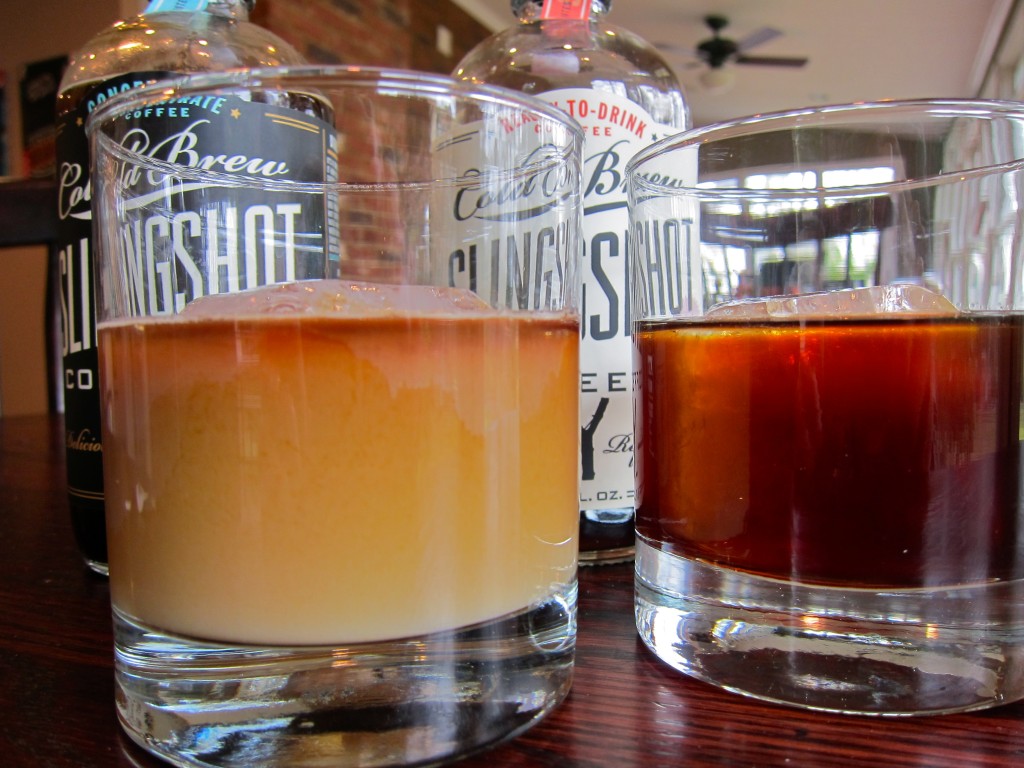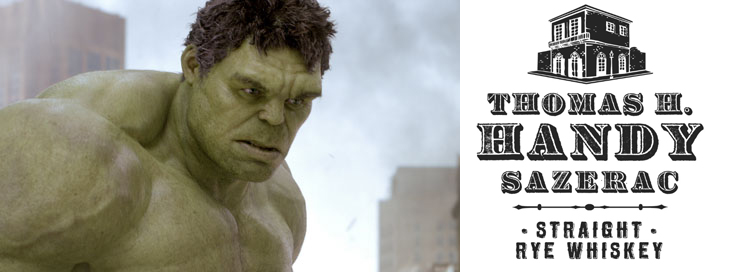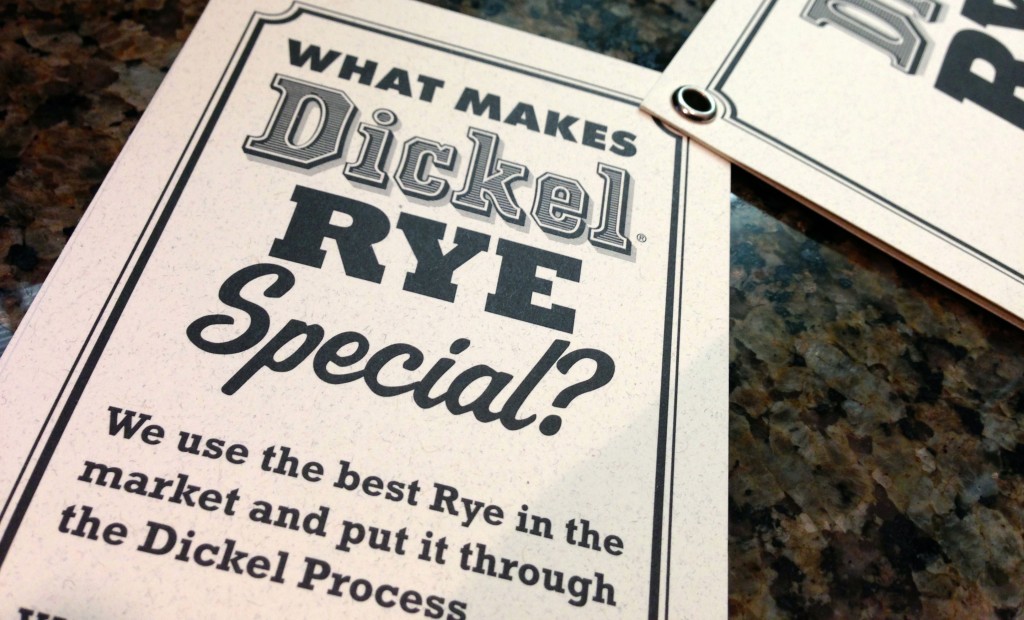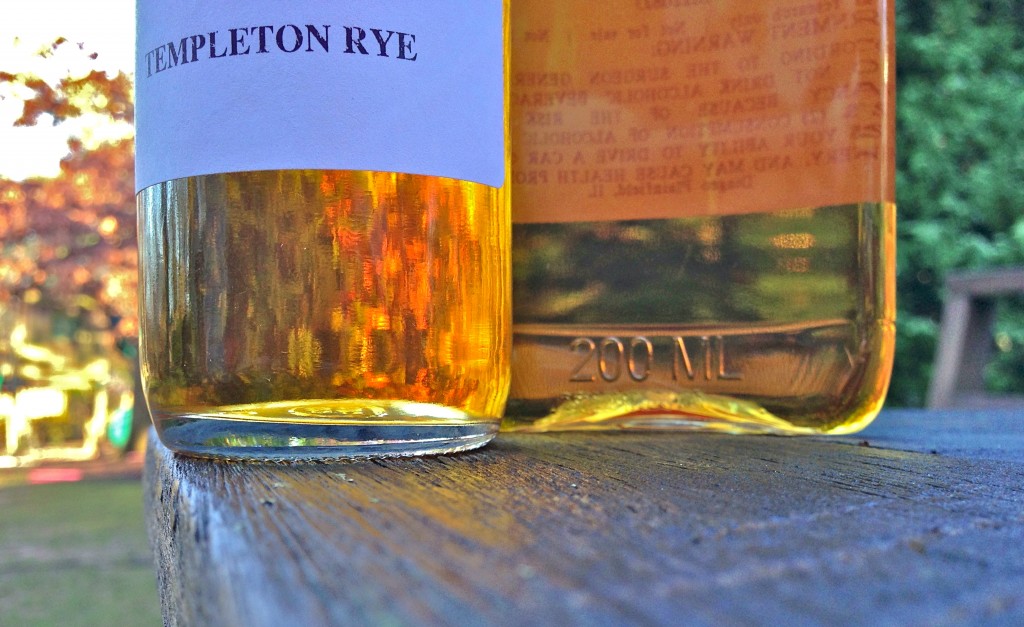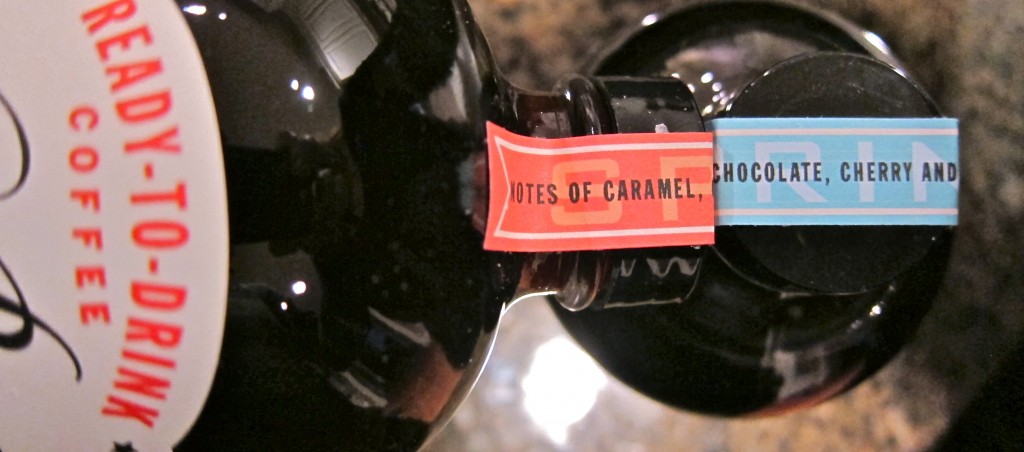 It may not seem like it yet, but warm weather is just around the corner. And that means iced coffee season. I happen to dig the cold brew approach, which keeps the flavors especially bright. But, you know what? It takes some time and effort to do it well. Which brings us to Slingshot Coffee Co., out of Raleigh, NC.
It may not seem like it yet, but warm weather is just around the corner. And that means iced coffee season. I happen to dig the cold brew approach, which keeps the flavors especially bright. But, you know what? It takes some time and effort to do it well. Which brings us to Slingshot Coffee Co., out of Raleigh, NC.
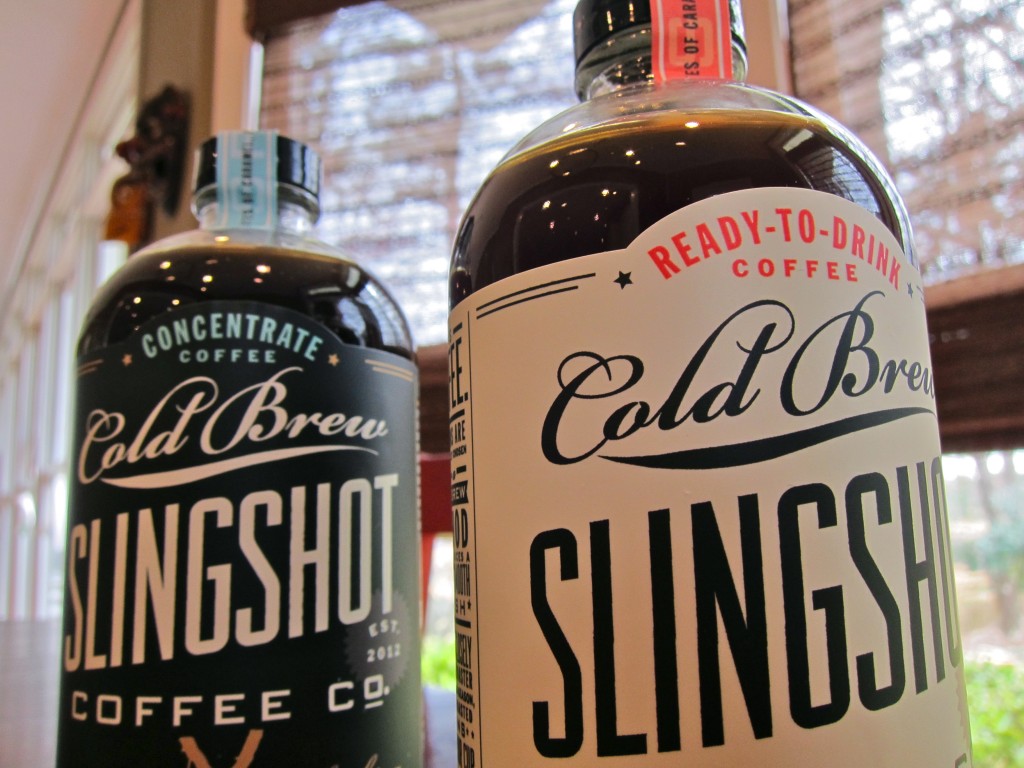 Slingshot cold brews locally roasted (in Raleigh) organic beans from Counter Culture Coffee, then they bottle it up so it’s ready to roll. Better still, they offer both a ready to drink version, and a concentrated version for those of you that dig on dropping dairy in your drink without diluting the delicate flavors. Dang.
Slingshot cold brews locally roasted (in Raleigh) organic beans from Counter Culture Coffee, then they bottle it up so it’s ready to roll. Better still, they offer both a ready to drink version, and a concentrated version for those of you that dig on dropping dairy in your drink without diluting the delicate flavors. Dang.
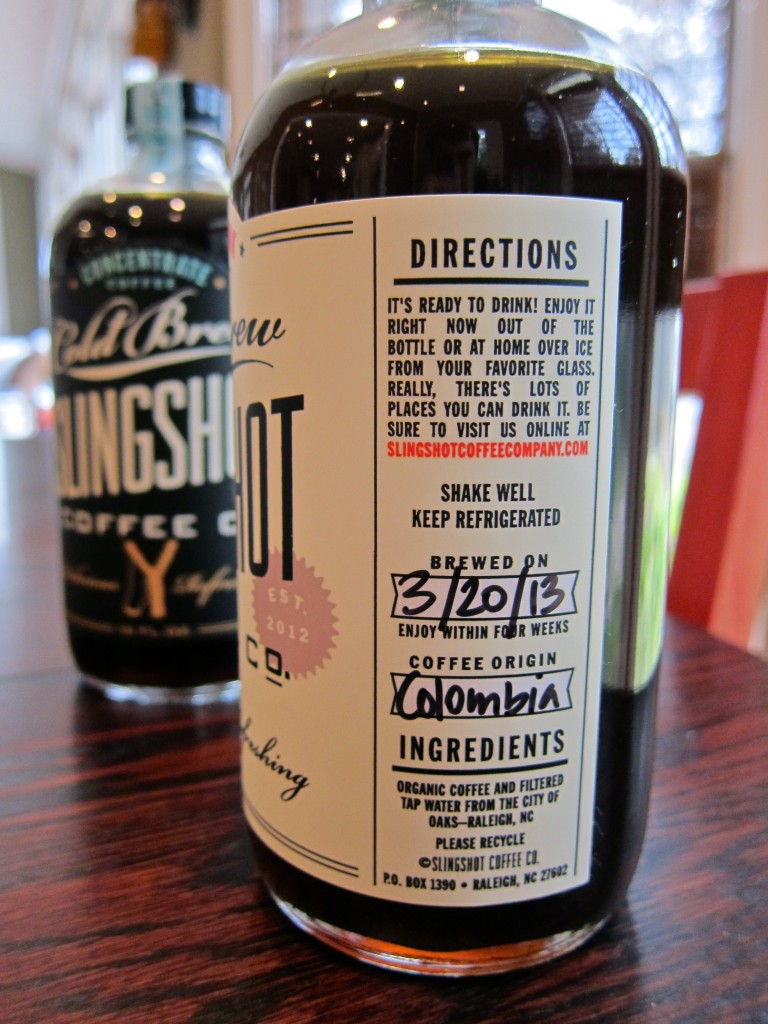 Slingshot changes up the beans they use based on the seasons, and they’re kind enough to mark the coffee origin and the brewed-on date on the side of each bottle. (See, check that out over there on the left). It’s hand brewed, bottled in small batches, just coffee and filtered tap water, nothing else. They seem kinda proud of the fact that the water used is the local tap water from Raleigh, which they refer to as “our beloved City of Oaks,” so I assume it’s decent stuff. Here in Atlanta? The water stinks. Literally. Like chlorine. So I’m happy to consume water from elsewhere in the South.
Slingshot changes up the beans they use based on the seasons, and they’re kind enough to mark the coffee origin and the brewed-on date on the side of each bottle. (See, check that out over there on the left). It’s hand brewed, bottled in small batches, just coffee and filtered tap water, nothing else. They seem kinda proud of the fact that the water used is the local tap water from Raleigh, which they refer to as “our beloved City of Oaks,” so I assume it’s decent stuff. Here in Atlanta? The water stinks. Literally. Like chlorine. So I’m happy to consume water from elsewhere in the South.
I recently tried Slingshot’s current batch, brewed just a couple days before I tasted it. The beans were from Columbia (the country I presume, not South Carolina), and the bottles noted that I might find notes of “caramel, chocolate, cherry, and a bit of citrus.” I tried both the Ready-to-Drink and the Concentrate, in various combinations of coffee, ice, milk (fat free, yo!), and simple syrup.
Straight out of the bottle, the Ready-to-Drink is darn delicious stuff, both smooth and bright, with plenty of lemony citrus (more than “a bit” if you ask me), and, yes, some bright cherry and dark chocolate notes. I just had to try the Concentrate straight, and it is not unlike espresso in character – with a much more assertive acidity than the Ready-to-Drink. Milk mixed in with the Concentrate gives the coffee a fuller, softer profile, with that caramel coming out more. The flavors, though, remain bright. My favorite iteration was the Ready-to-Drink with a bit of sugar (syrup) added. Now, it does not NEED sugar, and there are those among you that may scoff at adding sweetness to the coffee, but I found that the added sweetness really made the flavors pop. The fruitiness in the coffee came much more into focus, and I had a “wow” moment even after having tried the coffee in several other variations.
These come in 16oz. bottles, which means several servings in the Ready-to-Drink version, and several more for the Concentrate. If you drank 16oz of the Concentrate at once, you would be bouncing happily off the walls all day and all night. Are they cheap? No. It’s $8 or so locally for a bottle of the Ready-to-Drink. If you’re comparing this to a bottled Frappucino or a Java Monster mega-can, though, you’re in the wrong frame of mind. The right frame of mind is truly excellent coffee, ready to drink out of the fridge. And Slingshot delivers a great coffee for that frame of mind.
So, the question is… where can I find this stuff??? Slingshot has good distribution in the Raleigh/Durham area, and has managed to make it to the cooler (as in cold, but maybe also as in cool) shelves in a handful of other Southern cities like Birmingham and Nashville and Charleston. In Atlanta, look for Slingshot at Star Provisions or Whole Foods Buckhead. You can also buy them online from Slingshot, though the shipping prices are a bit daunting ($11 shipping for two bottles).
Samples provided by Slingshot Coffee Co. for tasting.
